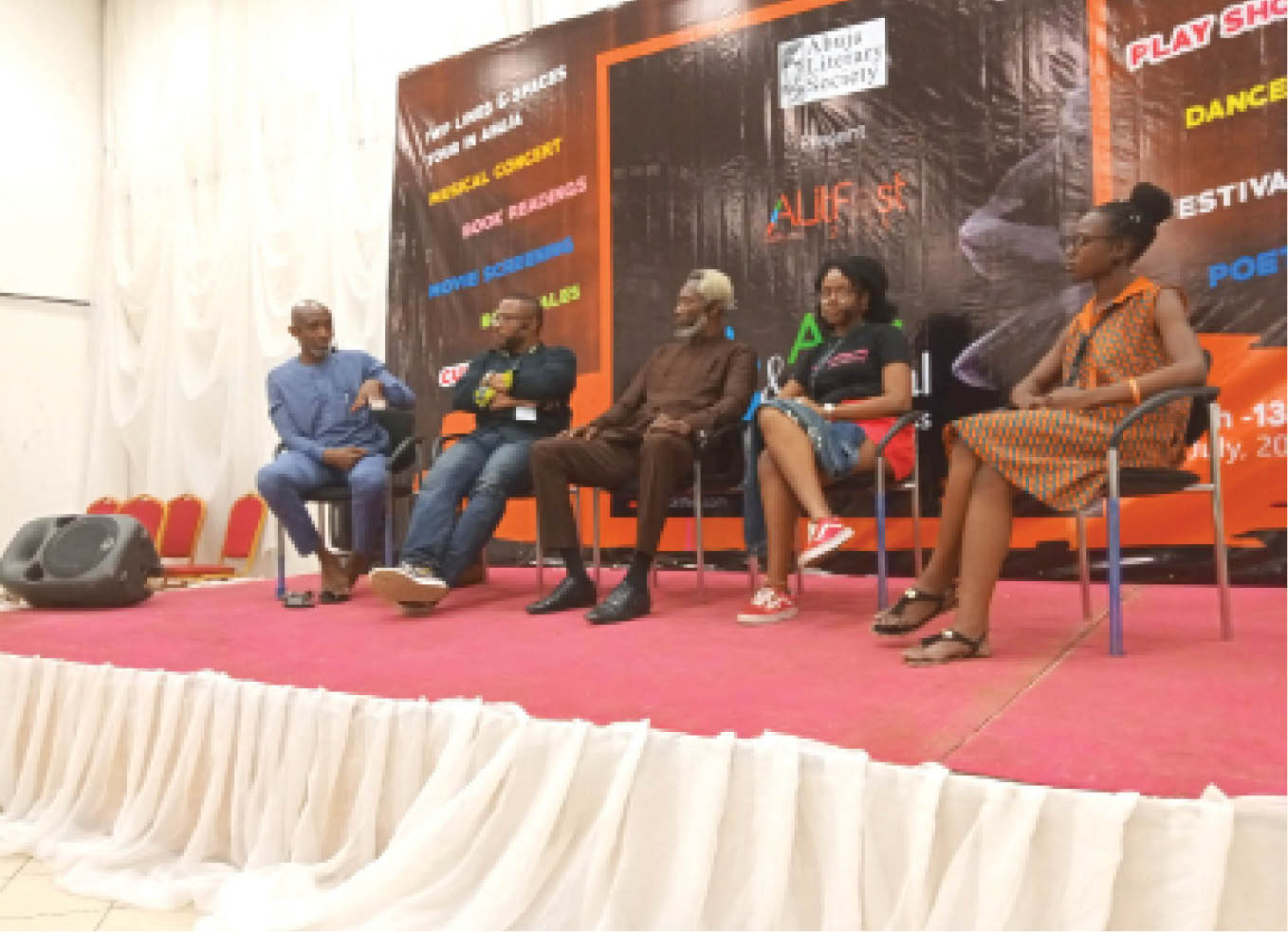How ALitFest lit up Abuja
The Abuja Literary and Arts Festival, which took place from July 11 to 13 at the Exhibition Pavilion in the capital city had an intriguing theme and a variety of tools to explore it. But how successful was it? When you attend a literary and arts festival, you expect several things, amongst which are […]

The Abuja Literary and Arts Festival, which took place from July 11 to 13 at the Exhibition Pavilion in the capital city had an intriguing theme and a variety of tools to explore it. But how successful was it?
When you attend a literary and arts festival, you expect several things, amongst which are panel discussions, book chats, an art exhibition, some music and dance, and an exceptional variety of books on display. The Abuja Literary and Arts Festival (ALitFest) had all these, and more.

This festival’s panel discussions did justice to the event’s theme, ‘Arts and Social Consciousness’ where discourse revolved around topics such as ‘Emerging Literary Voices’, open to the festival’s workshop top graduates, ‘Political Reportage, Press Freedom and Responsibility’, ‘Conflicts, Resentments and Historical Narratives’, and several more.
Interrogating the topic ‘Satire, Advocacy and Civic Engagement’, the trio of Eketi Edima Ette (writer and digital media manager), Nwachukwu Egbunike (writer and publisher), and writer, artist and Daily Trust Saturday editor, Abdulkareem Baba Aminu talked about the effectiveness of satire in bringing about social change.
Ette said that people tend to pay more attention when an incident is satirised more than when it’s confronted directly, while Aminu pointed out that Nigerians satirise a lot of things without realising it. Nwachukwu believes there is some kind of cruelty to satire.
But does a satirist have limitations? Aminu said he does because he avoids satirising tragedy of any kind. Ette, on the other hands, avoids anything to do with rape.
Another burning subject was that of ‘Sexuality, Birth Rates and the 21st Century Woman’. An author, Safiya Ismaila Yero, said there is no clear-cut line where religion ends and culture begins in northern Nigeria. “It’s less about religion and more about culture. Men in the north use religion to subjugate a woman,” she said, adding that the four vows a man makes when marrying a woman includes educating her but they don’t do it.
Author and CEO of 9jafeminista and Fellow, Ayodele Olofintuadeji, said she doesn’t understand gender roles and who made them, and opined that culture didn’t influence religion but rather the reverse is the case.
A particular panel discussion on ‘How to Write About Africa’ was in honour of late Binyavanga Wainaina who died this year. It included Odafe Atogun, author of ‘Wake Me When I’m Gone’, Chuma Nwokolo (‘The Extinction of Menai’), Eghosa Imasuen (‘Fine Boys’), and Ope Adedeji (winner of ‘The Short Story is Dead, Long Live the Short Story!” 2018 competition).
Then, of course, there was the bookstore area where Adams Pages, Rovingheights and several others displayed a wide variety. Helon Habila’s ‘Travellers’, released just last month, was sold out by the second day of the festival. Other books included Michele Obama’s ‘Becoming’, Toni Kan’s ‘Carnivorous City’, and many more.
Another attraction was the art gallery where paintings from artists such as Barry Yusuf, Anne Adams, Akinlade Tope, Olowu Ifeoluwa Oluwaseun were exhibited. Yusuf’s paintings, always with a dark background, included one of a boy stranded in the middle of nowhere. The artist pointed out that this was his way of showing the almajiri experience where a young boy leaves his home supposedly to learn the Qur’an in a far-off land and is left at the mercy of the society he finds himself in.
If you have never heard of the band ‘Isomers’, this group of three took the festival’s opening by storm. They sang a few songs, including ‘Why So Angry’ and ‘Lunatic’. Active on their guitars, ‘Lunatic’ sung typical rock-style, about a stalking lover got the crowd really excited.
There were other attractions at the event, which included a play from Zulu Sofola’s ‘Wedlock of the Gods’ among others and an after party to wrap things up. All in all, aside from the delays in kicking of programs on schedule, AlitFest was a beautiful experience.
